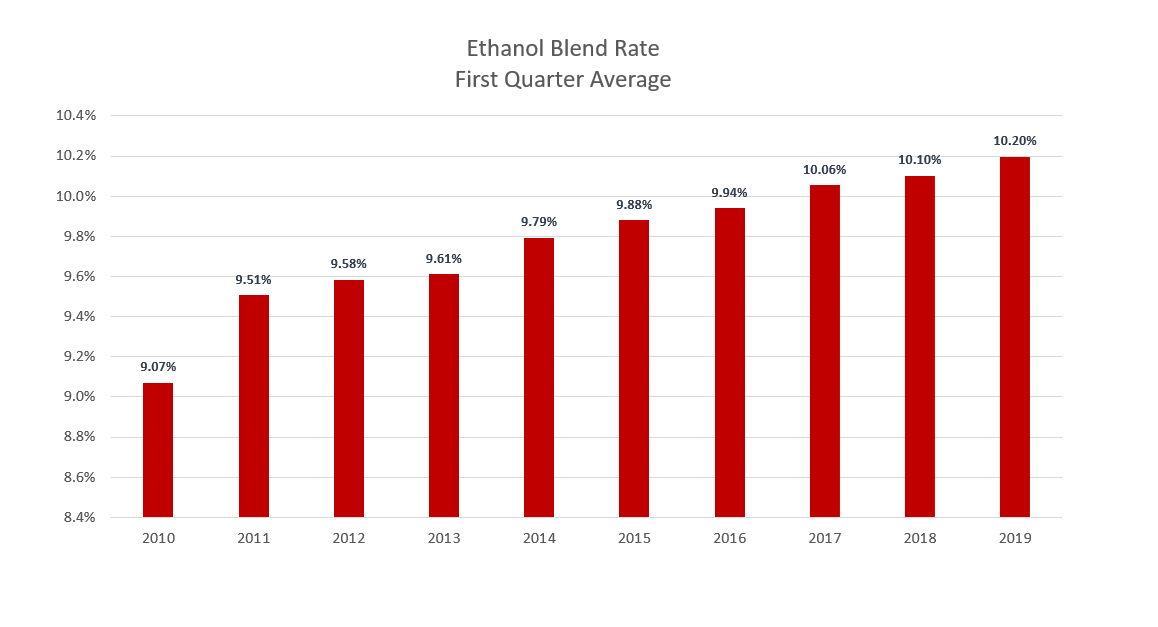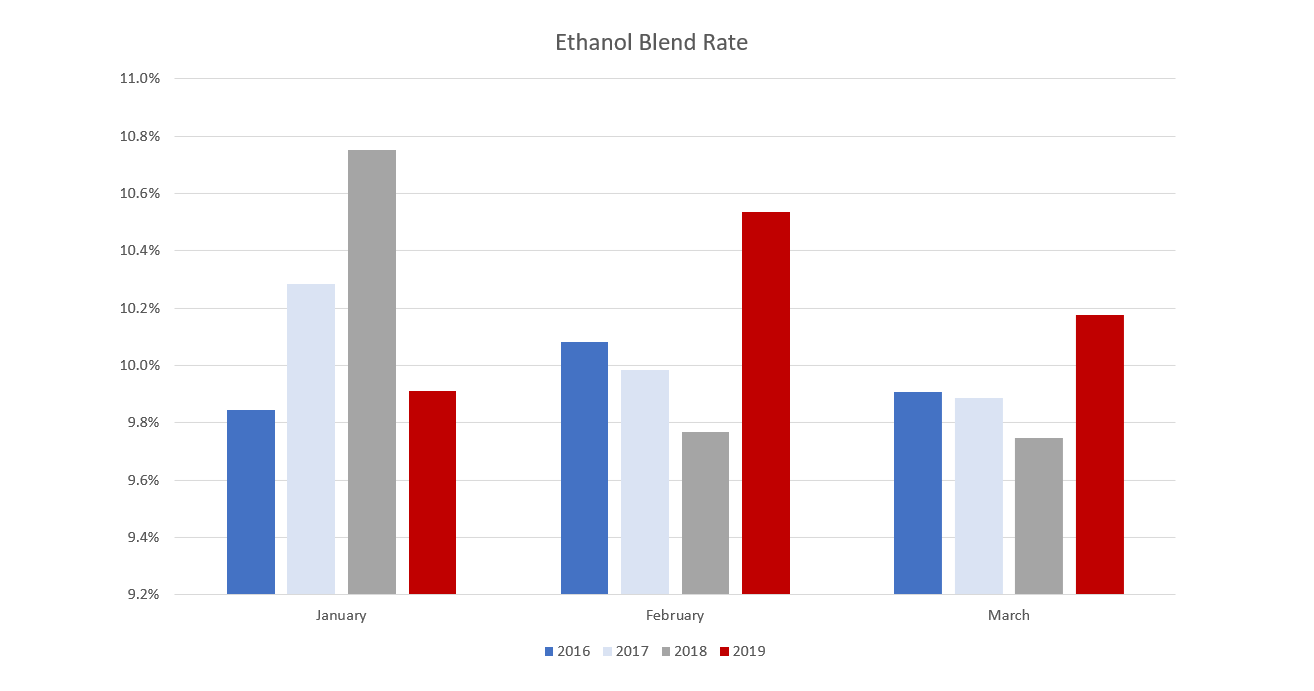In recent weeks, ethanol industry proponents have petitioned the Environmental Protection Agency (EPA) to cease issuing Small Refinery Exemptions (SREs) that waive qualified small refineries from the costly biofuel blending obligations mandated in the Renewable Fuel Standard (RFS). Congress specifically designed the RFS to include SREs as a critical protection for refineries that would otherwise face disproportionate economic hardship due to the program.
Now, the ethanol industry is trying to convince the EPA that the waivers cut into their business and, therefore, the agency should stop issuing them. Not only is the ethanol industry misconstruing the point of the SRE provision – which is not to make the ethanol industry whole, but rather to provide necessary relief to impacted refiners – but their complaint that SREs are hurting the ethanol industry is also demonstrably false. Month-over-month, official government data tells a very different story.
Energy Information Administration (EIA) data shows that the ethanol blend rate has remained within normal statistical variation. This has been analyzed and confirmed by University of Illinois economist Scott Irwin and a number of other experts. EIA data shows:
1. The overall physical ethanol consumption for Q1 2019* (the most recent, complete data available) is higher than it was in 2018.
2. The average ethanol blend rate was higher Q1 2019 (10.21%) than in Q1 2018 (10.09%). (ethanol blend rate = percentage of the overall fuel supply containing ethanol)

3. In February 2019, the ethanol blend rate was 10.53% — the highest in the 12 months preceding. And the March 2019 ethanol blend rate was 10.18 percent — higher than the March 2018 blend rate of 9.75 percent.

These blend rates have been stable for the past few years, underscoring the truth that ethanol demand is premised partially on the RFS, partially on demand for clean octane and partially on other factors – not SREs.
Similarly, when it comes to mid-level ethanol blends like E15, there is no data indicating that SREs are reducing demand. E15 and other mid-level ethanol blend sales have been growing all year and, in the case of E15, sales are higher at this point than they were last year, according to the Minnesota Bio-Fuels Association.
While the ethanol industry’s misguided campaign to end SREs would not deliver the outcome of increased sales that they seek, their efforts, if successful, could very well eliminate jobs at small refineries unable to remain in business due to unbearable RFS compliance costs.
Taking away a vital provision of the RFS with no sound basis would be a costly mistake. SREs must continue to be available to ensure small refineries continue producing the fuels Americans and our economy depend.


